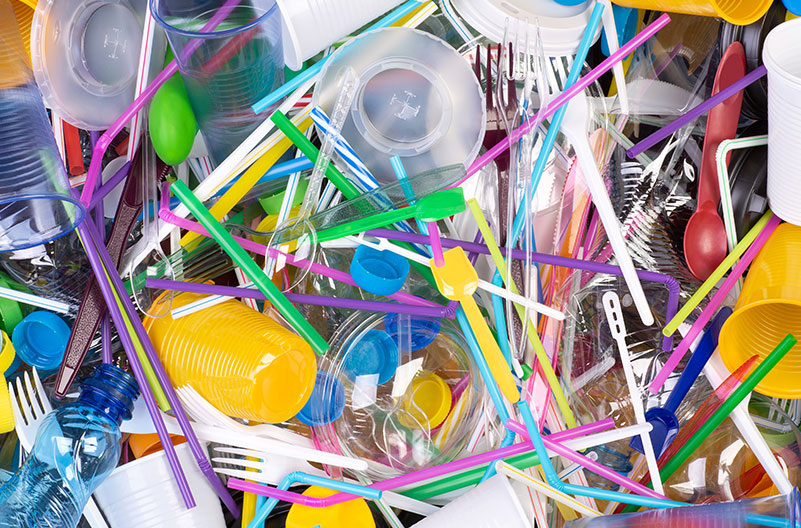Single-Use Plastics Ban


Following the success of the plastic bag charge, the Government is set to introduce a ban on the sale and use of many single use plastic items from October 2023. According to figures released by Defra at the end of July 2023, the use of single-use supermarket plastic bags has fallen 98% since retailers in England began charging for them in 2015.
The October 2023 ban will include many single-use plastic and polystyrene items, including: cutlery, balloon sticks and some plates, trays, bowls, polystyrene cups and food containers. From the introduction of the ban, food businesses in England including retailers, takeaways, food vendors and hospitality outlets will not be able to offer these products to their customers. This brings businesses in England in line with those in Scotland and Wales, who have complied with similar laws since 2022.
Plastic stirrers and straws are already restricted, following laws introduced in 2020.
A temporary exemption will apply to plates, trays and bowls that are considered to be packaging and cannot be replaced with a non plastic alternative – for instance, pre-packaged salad bowls, soups, desserts, or bowls or trays that are filled with food at the counter of a takeaway. Polystyrene cups for food that will be heated after purchase will also be exempt. These products will all be subject to different legislation at a later date, as part of the Extended Producer Responsibility Scheme (details to follow when available).
No – the legislation applies to all types of single use plastic, even biodegradable or compostable versions.
No – after the legislation comes into force, you will not be able to use any banned plastic products, even if you have already purchased them. So, before the ban comes into effect, you’ll need to think about all the products you need to use up and research the alternatives to replace them. Don’t forget to consider the difference in cost of these alternatives, and potential supply issues, especially as many businesses will be switching at a similar time. Alternative solutions you may consider include:
As we’ve already discussed, alternatives to single-use plastic may be more expensive and you may need to pass these costs onto your customer. If this is the case, make sure you communicate with your customers in advance. Highlighting the environmental benefits of your new packaging can be a great way to get them on board, and it’s very likely that they will see similar changes in competitors and other food businesses.
One concern for food safety experts is the potential use of customers’ own containers for takeaway and retail food. Where does the responsibility for food safety sit with food that is produced, then placed into a container that is potentially contaminated, damaged or unsuitable for the food that is placed with it?
Although use of customers’ own containers is currently being mooted as a potential method, unless the cleanliness of these containers can be guaranteed, it is unlikely that many food business owner will feel happy to sell food in this way. We could see the development of quick, efficient sanitisation methods that facilitate this – perhaps UV sterilisation? A better alternative might be investment into deposit and return schemes, which enable regular customers to pay a deposit for containers, then return them to the business for thorough cleansing and later reuse. Perhaps a universal container deposit scheme may emerge as a result of the single use plastic ban?
Ideas for alternatives to single use plastic are suggested by environmental campaigners, Rewrap https://www.refill.org.uk/alternatives-to-single-use-plastic/
This information post has been compiled by The Safer Food Group, leading training provider to the food industry. For more information about our courses, please visit www.thesaferfoodgroup.com or email info@thesaferfoodgroup.com
Join 950,000+ learners
Explore our award winning online video based training
The Safer Food Group
Unit 2, Integrity House,
Lower Lumsdale, Matlock
DE4 5EX
Back
to top
© The Safer Food Group 2025 | Privacy policy